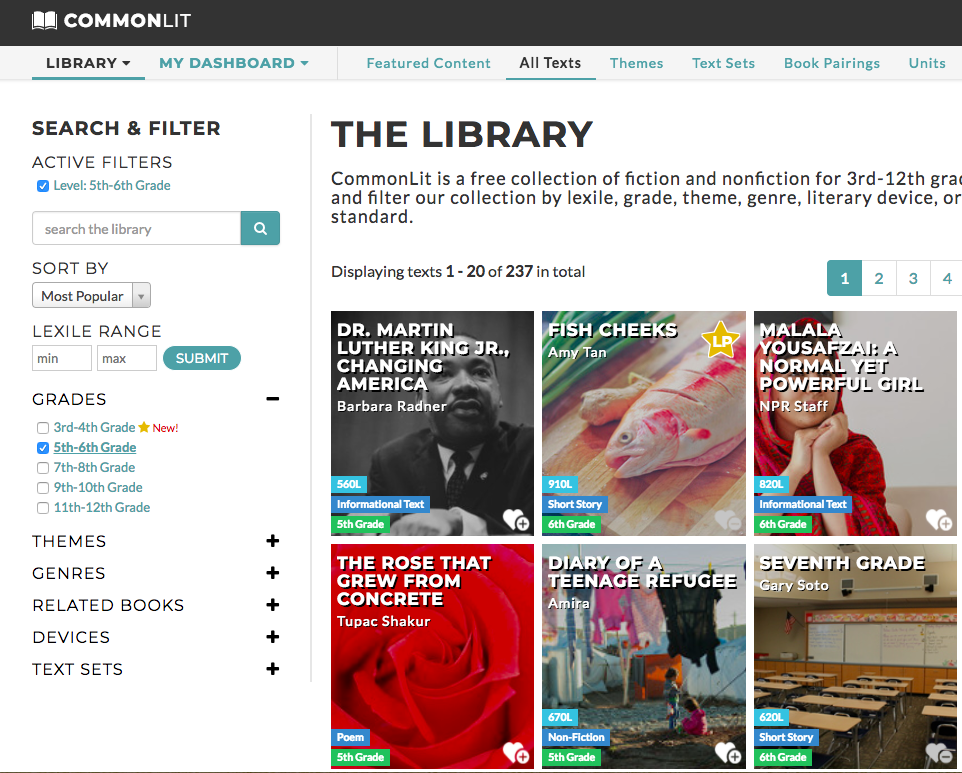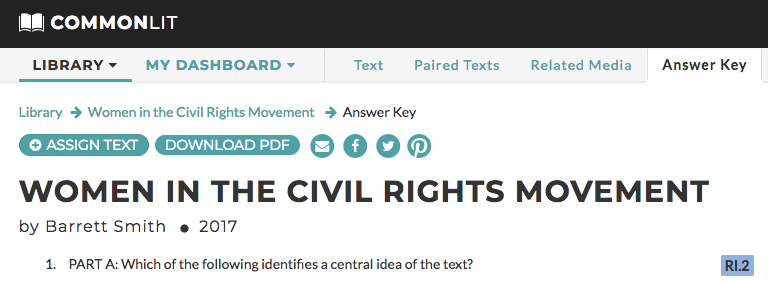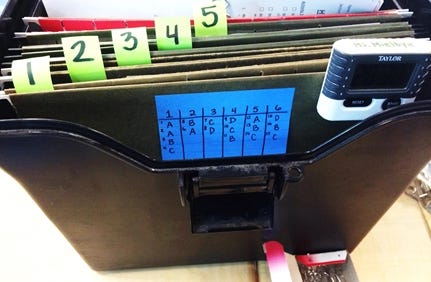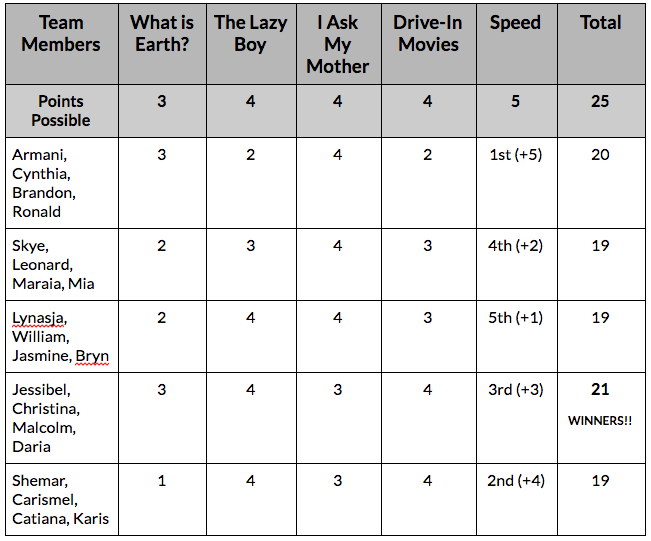Students use text evidence to quickly support their choices
This is our second post in the test prep series. At CommonLit, we’re all about getting students prepared, while still having fun! Last week, I shared the jigsaw game, a fun way to get students into a deep discussion. Today, I’m sharing the Multiple Choice Relay Race! This is one of the most effective and engaging methods for getting in multiple choice practice that I’ve ever encountered. I had reluctant readers vehemently defending their answers while they referred to the text for evidence. The relay race takes some preparation to set up, but trust me, it is so worth it!
Preparation
First, log into your CommonLit account and find 4–8 short passages aligned to your class reading level (or slightly above if you want to challenge students) — one for each relay round. To do this, go to the “View All Texts” page of the library. Once there, you can filter the library by grade level, sort by Lexile level, and select genres, themes, and standards to find the perfect texts for this activity. Make sure you preview the length of the texts; depending on your class period and grade level, you might not want to use texts longer than 1–2 pages. You can also preview the multiple choice questions in the Answer Key section of the text preview page.

You can have students read texts from a specific genre, or you can mix it up and assign a range of genres. I’ve selected an example set of texts for a 6th grade class. Each of these texts is concise and comes with great multiple choice questions:
- Informational STEM text: What is Earth? by NASA
- Folktale: The Story of the Lazy Boy: A Kachari Folktale Compiled by Rev. Sidney Endle
- Poem: I Ask My Mother to Sing by Li-Young Lee
- Memoir: The Drive-In Movies by Gary Soto
Preview the types of questions paired with each text by selecting the text and clicking “Answer Key.”

This activity works best on paper because it allows students to collaborate and make annotations together. To print out a copy of each text for every student, just click the “Download PDF” button on the text preview page. I usually sort the texts into hanging file folders for each relay round so they’re easy to grab as each group completes a round. I also keep a copy of the answer key right in front, so I can grade the rounds quickly as they come in.

Starting Class
Divide the class into heterogeneous groups, with 4–5 students of mixed reading abilities and levels per group. Have them rearrange their desks so that each group is sitting at a “table” together. Explain that they have the class period to get through as many relay rounds as possible. Each correct answer counts for one point, and points will be given for speed. (First team to finish all texts gets 5 bonus points, second team gets 4, and so on). You can also give bonus points for excellent annotations.
Here’s the big catch — teams must come to a consensus for each answer. Make sure each team elects a leader to submit the group answers. This forces students to have in-depth, heated discussions about rigorous questions, and use evidence to back up their arguments. I regularly heard students who almost never participate in class discussions fervently argue to a peer, “No, the answer is definitely B — look at paragraph 4!! The evidence says…” It’s amazing!
Before you start, set some norms! You know your class best, but it’s important to set some ground rules before starting this activity to keep it safe and fun for everyone. Make sure you set simple and clear parameters to remind students to respect their teammates. Remind them to use indoor voices and use a visual cue to get everyone’s attention quickly.
The Relay Race
To start, place the Round 1 text face down on each table. Ask for a drumroll, and then say “Go!” Once a team has read and come to a consensus for all the multiple choice answers for that round, a team leader runs up to you to turn in the group paper. Hand them the next round, then quickly grade their answers. I like to keep a live scoreboard up on the board as a motivator.
Here’s my example scoreboard:

This might sound like mayhem, and it can be a bit raucous, but I guarantee kids will have fun and get valuable practice dissecting a text and supporting their answers with evidence.
Want more great Test Prep ideas?
Check out this jigsaw game to engage your readers in a rich discussion.


